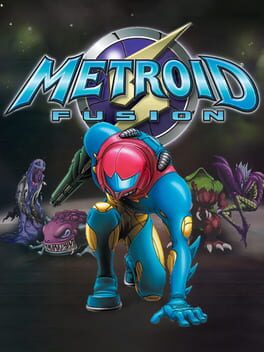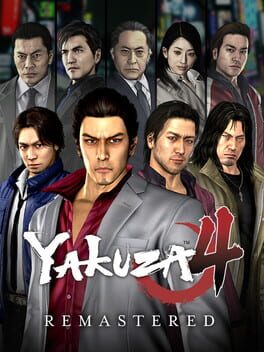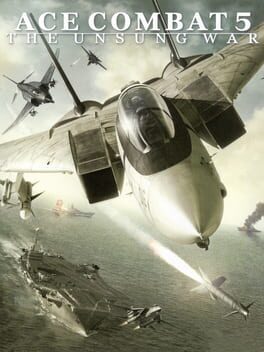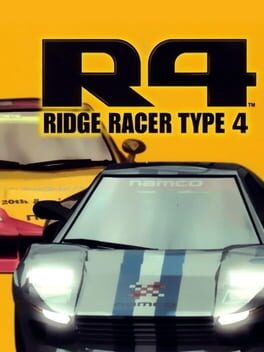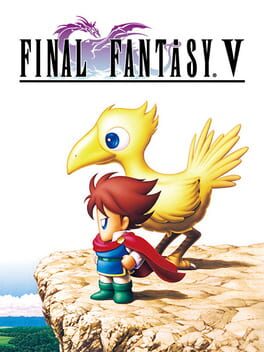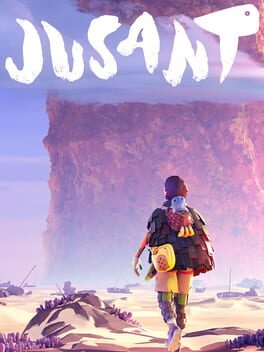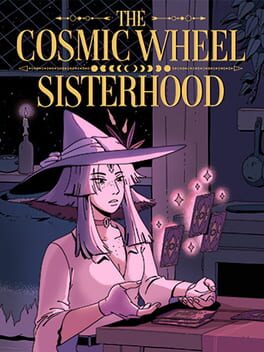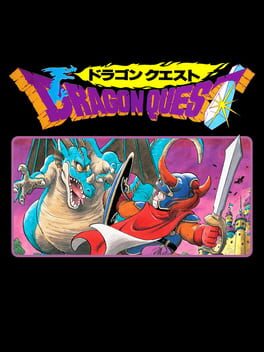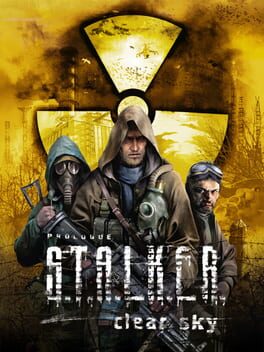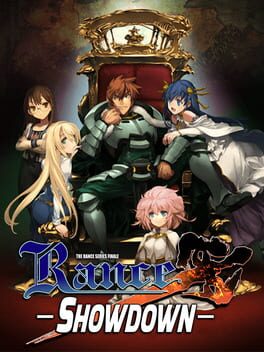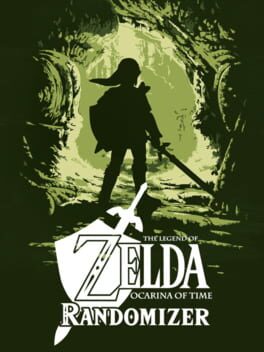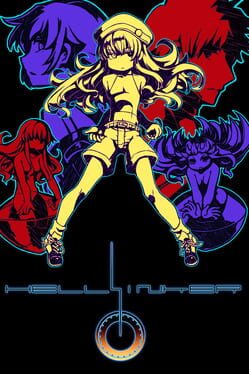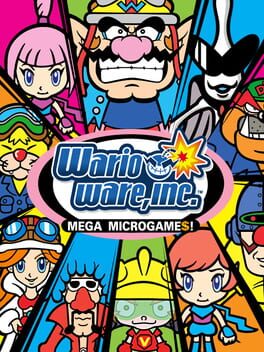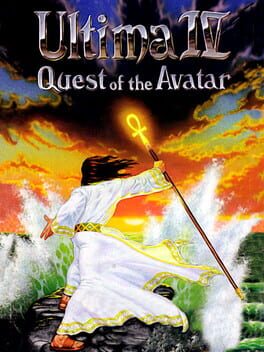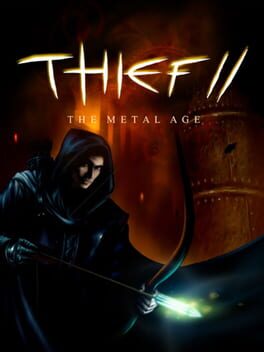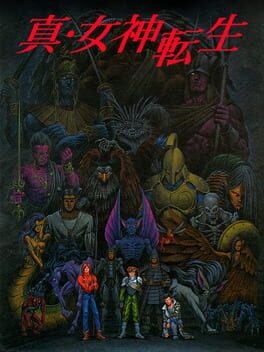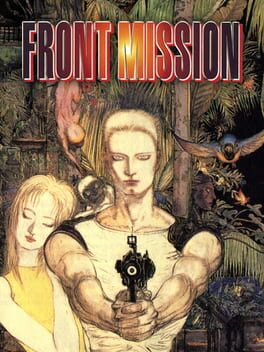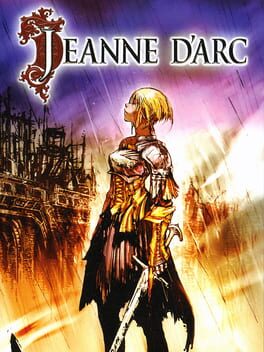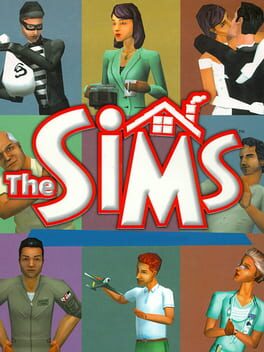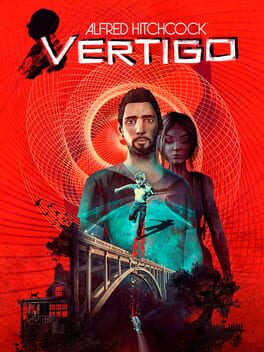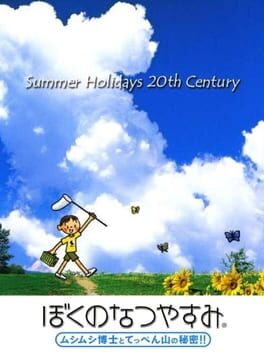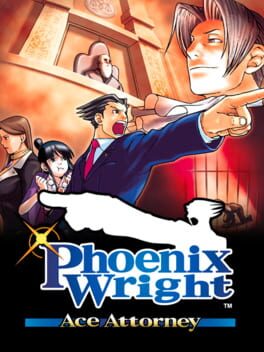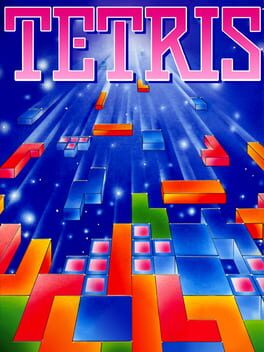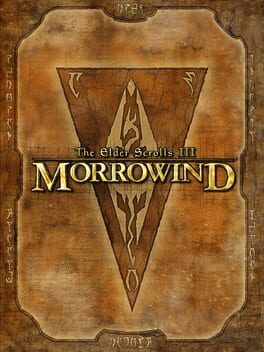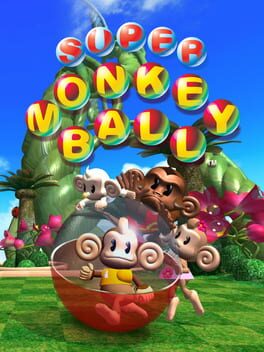bazzleby
BACKER
672 reviews liked by bazzleby
Metroid Fusion
2002
the discomfort zone got too comfortable so we made the comfort zone discomfortable. samus: meet samus
where super dove uncritically into the power fantasy that metroid II (the game with a literal Genocide Counter in the UI) unmasked and deflated, this feels like it's turning it inward against you personally. Your body, Your likeness, and Your autonomy hijacked; Your celebratory past tense role as (repeated) casual annihilationist to reckon with and cower from
it operates as something of a Super Negative Image Metroid: an inversion right down to the uncomfortable, choking grip of the direction. all that clammy ADAMsplaining, those sequestered zones, the redline urgency; everything's dialed perfectly into the exact same channel with uniform intent. even the woozy alien psychedelia's been spirited away in favour of clinical, detached interiors and astroturfed xerox biomes with some of the most appropriately sterile Oops No Backlight lighting on the GBA
and no, it obviously doesn't accomplish the same things as its predecessors, but it's not attempting to. this is a game about lack of control, and altering the format would be akin to breaking the spinal column that holds it upright. fusion's big successes (the pacing, brevity, tonal and thematic consonance, and delicate curation of tension and challenge) are the result of its structural changes. being shunted around a tiny sarcophagus isn't a flaw, it's the entire premise. duh
even without all that though it's impossible for me not to love a game with nightmare, the Profaned Baja Blast Suit, AQA's sunken banger, shots like this, and those absolutely psychotic ridley screams
quite possibly the best SA-X heavy fusion since the sultry sounds of steely dan
where super dove uncritically into the power fantasy that metroid II (the game with a literal Genocide Counter in the UI) unmasked and deflated, this feels like it's turning it inward against you personally. Your body, Your likeness, and Your autonomy hijacked; Your celebratory past tense role as (repeated) casual annihilationist to reckon with and cower from
it operates as something of a Super Negative Image Metroid: an inversion right down to the uncomfortable, choking grip of the direction. all that clammy ADAMsplaining, those sequestered zones, the redline urgency; everything's dialed perfectly into the exact same channel with uniform intent. even the woozy alien psychedelia's been spirited away in favour of clinical, detached interiors and astroturfed xerox biomes with some of the most appropriately sterile Oops No Backlight lighting on the GBA
and no, it obviously doesn't accomplish the same things as its predecessors, but it's not attempting to. this is a game about lack of control, and altering the format would be akin to breaking the spinal column that holds it upright. fusion's big successes (the pacing, brevity, tonal and thematic consonance, and delicate curation of tension and challenge) are the result of its structural changes. being shunted around a tiny sarcophagus isn't a flaw, it's the entire premise. duh
even without all that though it's impossible for me not to love a game with nightmare, the Profaned Baja Blast Suit, AQA's sunken banger, shots like this, and those absolutely psychotic ridley screams
quite possibly the best SA-X heavy fusion since the sultry sounds of steely dan
Yakuza 4 Remastered
2019
This review contains spoilers
Rubber bullets.
Given the other reviews on this page, it shouldn't be a surprise how many people are taken aback or out of the story entirely through such a plot point. Quite frankly, too many people miss the point entirely, only focusing on the absurdity of such an event. Admittedly, while I think it is a bit silly, there's something about it that highlights something within Saejima's character that I feel like gets overlooked.
For an absolute brute of a man loaded to the teeth with iron ready to absolutely execute everyone within the ramen shop, it's a little strange he never goes for a headshot, no? This observation in conjunction with That Scene (Haruka) I feel like some people miss on how true to his humanity Saejima is. Even in a position where his enemy is most susceptible to a bullet straight through the eyes, Saejima never takes the shot. Most, if not, all of his gunshots land in the abdomen. A seemingly lethal yet inversely very survivable place to be shot. There are a couple of gunshots that deviate from this but all land in non-lethal locations: 2 shots to the side from the back, and a gunshot to the shoulder. The location of the final bullet shooting the leader is revealed to be just below the shoulder, where the other abdomen-deviating shots landed. Had the bullets been real, it's likely that no one would have died at all. Though the mission was to kill people, Saejima couldn't stomach having to witness the lives of people leaving in front of his eyes.
Because of his humanity, this story beat allows the rest of the game to occur, in spite of his appearances and affiliations, he is human. Though it may seem like his allegiance to his family is absolute, his allegiance to humanity is indomitable.
Now about the rest of the game I love it I wish Tanimura was in Yakuza5 i love him so much RGG please bring him bac khe's my husband i miss him thank you.
Given the other reviews on this page, it shouldn't be a surprise how many people are taken aback or out of the story entirely through such a plot point. Quite frankly, too many people miss the point entirely, only focusing on the absurdity of such an event. Admittedly, while I think it is a bit silly, there's something about it that highlights something within Saejima's character that I feel like gets overlooked.
For an absolute brute of a man loaded to the teeth with iron ready to absolutely execute everyone within the ramen shop, it's a little strange he never goes for a headshot, no? This observation in conjunction with That Scene (Haruka) I feel like some people miss on how true to his humanity Saejima is. Even in a position where his enemy is most susceptible to a bullet straight through the eyes, Saejima never takes the shot. Most, if not, all of his gunshots land in the abdomen. A seemingly lethal yet inversely very survivable place to be shot. There are a couple of gunshots that deviate from this but all land in non-lethal locations: 2 shots to the side from the back, and a gunshot to the shoulder. The location of the final bullet shooting the leader is revealed to be just below the shoulder, where the other abdomen-deviating shots landed. Had the bullets been real, it's likely that no one would have died at all. Though the mission was to kill people, Saejima couldn't stomach having to witness the lives of people leaving in front of his eyes.
Because of his humanity, this story beat allows the rest of the game to occur, in spite of his appearances and affiliations, he is human. Though it may seem like his allegiance to his family is absolute, his allegiance to humanity is indomitable.
Now about the rest of the game I love it I wish Tanimura was in Yakuza5 i love him so much RGG please bring him bac khe's my husband i miss him thank you.
I was thoroughly unprepared for the excellence of Ace Combat... or at least the impression that AC5 would make on me as my first game in the series. I had been told by people whose opinions I don't... UNCONDITIONALLY trust, that this was "the one with the good story" and that it was generally the most beloved. Going in, I expected the story to be "pretty good", and I expected to play this one, be content that I had pretty much seen all there was to see from Ace Combat, and happily leave the other entries alone.
Ace Combat 5 is the sort of game that inspires such a love in you that staying unacquainted with its siblings feels almost disrespectful, as if you owe it to Ace Combat 5 to meet its parents and treat them with kindness. I have no intention of rushing these meetings, but this desire is so much more than anything Armored Core stirred in me when I first inspected it last year. Ace Combat 5, and I suspect the same of at least a few earlier entries, is a dream realized. It is the dream of every boy who encountered Top Gun in the 1980s, delivered with love, joy, and generosity. It is a dream that pervaded video games as early as Jet Rocket in 1970, and only unmerged from Star Wars in the late 90's. Ace Combat indulges a specific fantasy in ways that cannot be found elsewhere, and that's because Namco Bandai or Bandai Namco or Namcai Bundo or Bonklo Numbdy knows what they're doing.
With as much shit as people give that particular conglomerate for their assembly line anime tie-ins, it's easy to forget that Namco, patron god of Actually Fun Arcade Games yet lives, and the blood remains strong. There is one element of Ace Combat 5 (and I presume, other entries) that surprised me more than any other, and that is variety. I very much presumed that Ace Combat's missions would almost universally revolve around "Kill Enemy Planes Until I Say Stop." In truth it has dogfights, stealth missions, air-to-ground escort missions, survival missions, flight maneuverability challenges and more. At no point did I feel that missions were overly repetitive, or that the mission I was playing did not bring something interesting to the table.
I did, however, experience spikes in frustration. Certain missions do not communicate certain nuances of their objectives in the best of ways, and some defense targets are frighteningly stupid. Sea Goblin, you could fly LITERALLY ANYWHERE that is not along this narrow strip of magically appearing SAMs, and you would be just fine. You are in a helicopter. Also, I didn't experiment with this too much, but I suspect that most of the special weapons just kind of suck? Definitely feels as if there's room for improvement with designing around them or making them more interesting.
In some ways, the story exceeded my estimations, and in others it did not. I played, quite intentionally, with the English dub, and I was not disappointed. I kept expecting the voice acting to tip over into "hilariously bad" or "just seriously actually bad", but that never really happened. Most performances are awkward, yes, as is a lot of the dialogue, but for a video game dub from 2004, Ace Combat 5 has survived the rigors of time surprisingly intact. The awkwardness is endearing, and not particularly distracting. It has a strong soundtrack, good looking cutscenes for its time, and lands some surprisingly emotional punches. I won't act as though there aren't times when it feels like the story stands still a little too long, or like every story beat is explored to its full potential, or like the ending doesn't feel a touch anti-climactic, but the game invests players in its characters and in the concepts of its war story well enough.
Ace Combat 5 has been enough to give me a genuine fondness for a whole new genre of thing. While playing it, I watched both Top Gun and Top Gun Maverick for the first time each. I at once understood that Fantasy Flight Simulators should have always been a video game genre held in at least as high esteem as the racing game. Sooner or later, I'm going to play more Ace Combat.
Ace Combat 5 is the sort of game that inspires such a love in you that staying unacquainted with its siblings feels almost disrespectful, as if you owe it to Ace Combat 5 to meet its parents and treat them with kindness. I have no intention of rushing these meetings, but this desire is so much more than anything Armored Core stirred in me when I first inspected it last year. Ace Combat 5, and I suspect the same of at least a few earlier entries, is a dream realized. It is the dream of every boy who encountered Top Gun in the 1980s, delivered with love, joy, and generosity. It is a dream that pervaded video games as early as Jet Rocket in 1970, and only unmerged from Star Wars in the late 90's. Ace Combat indulges a specific fantasy in ways that cannot be found elsewhere, and that's because Namco Bandai or Bandai Namco or Namcai Bundo or Bonklo Numbdy knows what they're doing.
With as much shit as people give that particular conglomerate for their assembly line anime tie-ins, it's easy to forget that Namco, patron god of Actually Fun Arcade Games yet lives, and the blood remains strong. There is one element of Ace Combat 5 (and I presume, other entries) that surprised me more than any other, and that is variety. I very much presumed that Ace Combat's missions would almost universally revolve around "Kill Enemy Planes Until I Say Stop." In truth it has dogfights, stealth missions, air-to-ground escort missions, survival missions, flight maneuverability challenges and more. At no point did I feel that missions were overly repetitive, or that the mission I was playing did not bring something interesting to the table.
I did, however, experience spikes in frustration. Certain missions do not communicate certain nuances of their objectives in the best of ways, and some defense targets are frighteningly stupid. Sea Goblin, you could fly LITERALLY ANYWHERE that is not along this narrow strip of magically appearing SAMs, and you would be just fine. You are in a helicopter. Also, I didn't experiment with this too much, but I suspect that most of the special weapons just kind of suck? Definitely feels as if there's room for improvement with designing around them or making them more interesting.
In some ways, the story exceeded my estimations, and in others it did not. I played, quite intentionally, with the English dub, and I was not disappointed. I kept expecting the voice acting to tip over into "hilariously bad" or "just seriously actually bad", but that never really happened. Most performances are awkward, yes, as is a lot of the dialogue, but for a video game dub from 2004, Ace Combat 5 has survived the rigors of time surprisingly intact. The awkwardness is endearing, and not particularly distracting. It has a strong soundtrack, good looking cutscenes for its time, and lands some surprisingly emotional punches. I won't act as though there aren't times when it feels like the story stands still a little too long, or like every story beat is explored to its full potential, or like the ending doesn't feel a touch anti-climactic, but the game invests players in its characters and in the concepts of its war story well enough.
Ace Combat 5 has been enough to give me a genuine fondness for a whole new genre of thing. While playing it, I watched both Top Gun and Top Gun Maverick for the first time each. I at once understood that Fantasy Flight Simulators should have always been a video game genre held in at least as high esteem as the racing game. Sooner or later, I'm going to play more Ace Combat.
Ridge Racer Type 4
1998
After hours. I am a single line across which all other lines unfold, slick, slipping. Going so fast the strands slide through the cracks of the emulator.
2:00 am. My automobile body funnelled into video-tunnels that stretch without end to the rhythm of nu-jazz beats. A drama that plays on repeat for my Pearl Blue Soul.
Someway, somehow, R4 reminds me of a Hong Sang-soo film.
It's a senseless comparison, played-out across mediums and genres but every time I come back to these tracks it persists, blends-in along the city lights and tire marks in my rear-view mirror.
There's a tension in this philosophy of drift, the joyous longing of century's sunset, that makes me pause for thought at the end of every race. The stories are so simple, the game presented with such expert straightforwardness, as to blur the feeling itself in Camarro-yellows.
Still, where I think this iteration of Ridge Racer joins the cinema of the author is in that insistence to make flows coexist - rub emotion and expression against one another in ways most often hidden - and leave the outbursts at the edges of the screen.
The speed of Ridge Racer is the pace of life itself but for all its glamour breathlessness the moments that truly stir are those near-misses, the curves in a length of road where the vehicle goes slightly out of control and you brush past a rival. The little encounters. The seconds where the heart stops. I wish I could've held-on to your hand a horizon longer.
Type 4s and margaritas, that’s all I want for the summer.
2:00 am. My automobile body funnelled into video-tunnels that stretch without end to the rhythm of nu-jazz beats. A drama that plays on repeat for my Pearl Blue Soul.
Someway, somehow, R4 reminds me of a Hong Sang-soo film.
It's a senseless comparison, played-out across mediums and genres but every time I come back to these tracks it persists, blends-in along the city lights and tire marks in my rear-view mirror.
There's a tension in this philosophy of drift, the joyous longing of century's sunset, that makes me pause for thought at the end of every race. The stories are so simple, the game presented with such expert straightforwardness, as to blur the feeling itself in Camarro-yellows.
Still, where I think this iteration of Ridge Racer joins the cinema of the author is in that insistence to make flows coexist - rub emotion and expression against one another in ways most often hidden - and leave the outbursts at the edges of the screen.
The speed of Ridge Racer is the pace of life itself but for all its glamour breathlessness the moments that truly stir are those near-misses, the curves in a length of road where the vehicle goes slightly out of control and you brush past a rival. The little encounters. The seconds where the heart stops. I wish I could've held-on to your hand a horizon longer.
Type 4s and margaritas, that’s all I want for the summer.
Final Fantasy V
1992
this game gets really sold short just for not being as self serious as ff4 and not as grand as the series gets from 6 onward but it's a really spectacular game even outside of its stellar mechanics and practically outdoes ff4 in every way. definitely leans a bit more on comic relief than some people might like but there's some really great moments here and the cast is really strong, especially with galuf and bartz, and exdeath is undercut by fans for how interesting of an antagonist he is. neo exdeath is by far the coolest final boss design in this series to me other than safe sephiroth, and even if he's pretty stock standard on a surface level i think he deserves more credit as a villain. easily my favorite of the snes trilogy of final fantasy games and a game i can't recommend enough to fans of jrpgs
Jusant
2023
A word for Guillaume Ferran's musical delicacy: This world is full of visual wind. Pastel minerals and all that jazz. Sound quarrels with space. The stone is teeming with human voices, humane thoughts. But he brings a throughline. A clarity of purpose to the evocative building blocks of culture put in place here. Nature is not a phantasm - it is a constant object of animated dialogue. Breath after breath. All we need do is listen.
Jusant does not care for the pain of the ascension. All it sees is a dark passage - the colours held within. Good. Dwell too long and you lose sight of what truly matters: Our toil, imagined or otherwise, will always bring us closer to shape. Memory is nothing but fickle, watery matter. We bend and love leaks. The dead and the unborn watch us. Time ebbs and flows in my body - this house of all houses.
Storm gathers. This other place. This unmoored Babel. It's not coming back. Our efforts were in vain and only we remain. Waiting for rain to hit the shore - soaked by association. That kind of primeval sensation software could only recreate in the aggregate. But that's the beauty of memory. There isn't a single drop of rain in Jusant. Yet here I am.
Souvenirs d'une éclaboussure.
Jusant does not care for the pain of the ascension. All it sees is a dark passage - the colours held within. Good. Dwell too long and you lose sight of what truly matters: Our toil, imagined or otherwise, will always bring us closer to shape. Memory is nothing but fickle, watery matter. We bend and love leaks. The dead and the unborn watch us. Time ebbs and flows in my body - this house of all houses.
Storm gathers. This other place. This unmoored Babel. It's not coming back. Our efforts were in vain and only we remain. Waiting for rain to hit the shore - soaked by association. That kind of primeval sensation software could only recreate in the aggregate. But that's the beauty of memory. There isn't a single drop of rain in Jusant. Yet here I am.
Souvenirs d'une éclaboussure.
First, you created your world.
What should a game be? I've never been inside the room when a studio decides to make something new. It's not hard to imagine what it's like to have all the potential in the world in front of you, just waiting to be molded, but rarely is that the most accurate picture of what the creation of anything new on a significant scale looks like. Why would most developers bother asking what a game should be? What it is is set in stone from before they even began: It is a product, first and foremost. This doesn't preclude it being art, even great art—the two categories are not mutually exclusive, even if they are in tension with one another.
But when I sit down and play The Cosmic Wheel Sisterhood, it feels like everything about it was designed downstream of that one vital question of what a game should even be. I feel this way with Pentiment, with Heaven's Vault, with Strange Horticulture, Book of Hours, and Suzerain: It feels like I am standing on the edge of a new world, even while they are inescapably familiar and old in many ways. But so it is for anything new. Nothing springs out of the aether. These games and their designers recognize that what they are is written in their very essence—not merely their code, any more than our DNA is our essence exactly—and that we are the ones who write what that essence can be.
The Cosmic Wheel Sisterhood stuns with its structure. It loosely aligns itself into chapters and acts, following a linear path, but one that is hard to distinguish from the little splits in every direction flattened under the feet of those who were once lost here. That is to say: I had no idea where the game was taking me, but I was eager to follow and see what I could along the way. You build a deck that is not quite tarot. You read the cards for those you meet. You change the rhythm of fate. This is the main connective tissue of the game, but the game doesn't so much revolve around mechanics as it does around the ideas of fate and meaning. Halfway through the mechanical focus of the game completely pivots and you find yourself mired in a political race.
This prospect thrilled me. So often a world is constructed to draw limitations on a narrative when working with something this intimate in scope. It is the jailer: You cannot leave this single location, and the Lore justifies why that is. Here, the world is constructed to shatter the limitations that we are stuck with. If we are jailed, why is that, who enforces it, and how can we interact with the world nevertheless? The existence of the jailer and the jailing society are contained within the jail itself. The smallness of this game creates something that feels so expansive that when you look back at the end, it's hard to believe it's just been a couple hours.
Much of that, to me, is created precisely by the opacity of the game and its mechanics, similarly to many of the games I listed previously. I'll say it: I'm fucking tired of the fetishization of player agency, letting you do anything and go everywhere or whatever nonsense that idea has morphed into. I don't need games to be a world that I live in for exorbitant amounts of time. I love when games have totally inscrutable mechanics and some degree of randomness and lock you out of events and force you to just reckon with whatever decisions you made. Give me severe limitations in scope and options, just make it interesting. Have a vision, for god's sake!
And yet: The Cosmic Wheel Sisterhood's vision is of a world in which you truly construct your own meaning (which is a funny thing to say, given that meaning is perhaps the only pure act of creation that any of us engage in). It is all about agency. There's an idea here about playing the cards you're dealt by recognizing that you get to decide what the cards mean, despite the limitations of each card. But once you lay down the cards, the truth is decided. Fortuna writes reality.
Which is a funny tension, isn't it, the idea that agency is real and you decide what is, but then how could anyone else have agency when you simply write what is? How could even you have agency once you've read the cards? It's that delicious tension that lies at the heart of this game, time laid out flat so that the future and the past and the present are all just here at once when you shuffle your deck. I feel this tension most during the peak of the political campaign when a Cosmic Poet stops by to help you. Such a small thing and still we reach for the cards to generate the poem that we would have written even without the cards, skipping straight to the end that could not have been without all that we skipped over. They call it a paradoxical poem. It's beautiful:
First, you created your world. Waiting on the first beat of a new universe, you float, weightless, timeless, inside the potential of magic. This is what happens when you hold two mirrors together.
A piece of art is almost like a person. You see the fragmented experiential pieces of all that created them: the other. You see the thoughts lifted from your own head and reflected back at you: the self. You recognize the self inside the other and the other inside the self. I think I love this tension of agency undermining itself because ultimately, who gives a fuck? I don't care about whether I really have agency in a game. I just want it to be an almost-person, to be a mirror. I want us to bounce light back and forth between us until it fades away into reflected incoherence, fully subsumed into something new that we've created by staring into each others' abyss. I want it to create something new inside me that will fester and grow until it springs forth into something beautiful.
This is what happens when you hold two mirrors together: You create. The beginning was written in the end, and the end in the beginning. What difference is there, really, when time folds against itself upon the draw of a card?
At the end of the game, it turns out nothing you did really changes anything. It all collapses back into itself, into the fate which you wrote at the very beginning of the game. You were picking a card without realizing that is what you were doing. The strokes of reality had already been drawn from that very moment.
But in-between the strokes you found everything that matters.
What should a game be? I've never been inside the room when a studio decides to make something new. It's not hard to imagine what it's like to have all the potential in the world in front of you, just waiting to be molded, but rarely is that the most accurate picture of what the creation of anything new on a significant scale looks like. Why would most developers bother asking what a game should be? What it is is set in stone from before they even began: It is a product, first and foremost. This doesn't preclude it being art, even great art—the two categories are not mutually exclusive, even if they are in tension with one another.
But when I sit down and play The Cosmic Wheel Sisterhood, it feels like everything about it was designed downstream of that one vital question of what a game should even be. I feel this way with Pentiment, with Heaven's Vault, with Strange Horticulture, Book of Hours, and Suzerain: It feels like I am standing on the edge of a new world, even while they are inescapably familiar and old in many ways. But so it is for anything new. Nothing springs out of the aether. These games and their designers recognize that what they are is written in their very essence—not merely their code, any more than our DNA is our essence exactly—and that we are the ones who write what that essence can be.
The Cosmic Wheel Sisterhood stuns with its structure. It loosely aligns itself into chapters and acts, following a linear path, but one that is hard to distinguish from the little splits in every direction flattened under the feet of those who were once lost here. That is to say: I had no idea where the game was taking me, but I was eager to follow and see what I could along the way. You build a deck that is not quite tarot. You read the cards for those you meet. You change the rhythm of fate. This is the main connective tissue of the game, but the game doesn't so much revolve around mechanics as it does around the ideas of fate and meaning. Halfway through the mechanical focus of the game completely pivots and you find yourself mired in a political race.
This prospect thrilled me. So often a world is constructed to draw limitations on a narrative when working with something this intimate in scope. It is the jailer: You cannot leave this single location, and the Lore justifies why that is. Here, the world is constructed to shatter the limitations that we are stuck with. If we are jailed, why is that, who enforces it, and how can we interact with the world nevertheless? The existence of the jailer and the jailing society are contained within the jail itself. The smallness of this game creates something that feels so expansive that when you look back at the end, it's hard to believe it's just been a couple hours.
Much of that, to me, is created precisely by the opacity of the game and its mechanics, similarly to many of the games I listed previously. I'll say it: I'm fucking tired of the fetishization of player agency, letting you do anything and go everywhere or whatever nonsense that idea has morphed into. I don't need games to be a world that I live in for exorbitant amounts of time. I love when games have totally inscrutable mechanics and some degree of randomness and lock you out of events and force you to just reckon with whatever decisions you made. Give me severe limitations in scope and options, just make it interesting. Have a vision, for god's sake!
And yet: The Cosmic Wheel Sisterhood's vision is of a world in which you truly construct your own meaning (which is a funny thing to say, given that meaning is perhaps the only pure act of creation that any of us engage in). It is all about agency. There's an idea here about playing the cards you're dealt by recognizing that you get to decide what the cards mean, despite the limitations of each card. But once you lay down the cards, the truth is decided. Fortuna writes reality.
Which is a funny tension, isn't it, the idea that agency is real and you decide what is, but then how could anyone else have agency when you simply write what is? How could even you have agency once you've read the cards? It's that delicious tension that lies at the heart of this game, time laid out flat so that the future and the past and the present are all just here at once when you shuffle your deck. I feel this tension most during the peak of the political campaign when a Cosmic Poet stops by to help you. Such a small thing and still we reach for the cards to generate the poem that we would have written even without the cards, skipping straight to the end that could not have been without all that we skipped over. They call it a paradoxical poem. It's beautiful:
First, you created your world. Waiting on the first beat of a new universe, you float, weightless, timeless, inside the potential of magic. This is what happens when you hold two mirrors together.
A piece of art is almost like a person. You see the fragmented experiential pieces of all that created them: the other. You see the thoughts lifted from your own head and reflected back at you: the self. You recognize the self inside the other and the other inside the self. I think I love this tension of agency undermining itself because ultimately, who gives a fuck? I don't care about whether I really have agency in a game. I just want it to be an almost-person, to be a mirror. I want us to bounce light back and forth between us until it fades away into reflected incoherence, fully subsumed into something new that we've created by staring into each others' abyss. I want it to create something new inside me that will fester and grow until it springs forth into something beautiful.
This is what happens when you hold two mirrors together: You create. The beginning was written in the end, and the end in the beginning. What difference is there, really, when time folds against itself upon the draw of a card?
At the end of the game, it turns out nothing you did really changes anything. It all collapses back into itself, into the fate which you wrote at the very beginning of the game. You were picking a card without realizing that is what you were doing. The strokes of reality had already been drawn from that very moment.
But in-between the strokes you found everything that matters.
Dragon Quest
1993
(snes version)
All but perfectly composed. The way the world folds out from your central location (the place you save), the magnificent numbers tuning where a 5 is the most beautiful thing you've ever seen, the hum of combat stripped to its essentials and the light open-world design that encourages interacting with its residents...Dragon Quest basically one-and-done'd it all. About the only thing I have any desire to ding it for is that magic is largely useless outside of healing and traversal, half your arsenal profoundly unnecessary in a game otherwise so tightly formed.
But honestly who cares when faced with Dragon Quest's greatest strength: its tone. Despite the image DQ has accrued of being lovely and charming and nostalgic and warm, this game is a profoundly sad experience. The world is dead. Towns are in ruins. Poison litters the ground as naturally as water and there are more bloodthirsty, alien monsters than there are people anymore. And every person you talk to time and time again puts it all on you: you have to save us, you are the only one who can. There are no party members, it's a journey of solitude. No friends to make, no campfire stories or wacky hijinx to get into, just the one thing you were born to do. You have no choice; it's in your blood. You can't even die, fate and duty so strong that you are brought back again and again until you succeed. Every inch of this game is oozing a melancholic weight heavier than just about anything in gaming. It's no coincidence that Koichi Sugiyama's (god not rest his soul) overworld theme here, the song you are treated to the most, brings to mind the fog before a rain more than any idea of adventure.
Palpable stuff! Stuff that is astounding in its own right but which also builds to a transcendent release at the end, one of the great narrative moments in a game, when you finally accomplish your goal and the world explodes into flowers and all the monsters vanish and everyone celebrates and you, the hero, freed from the grip of responsibility and expectation, life now perfectly without purpose, wander off to new worlds. (something something about killing the dark fascist lord and then rejecting your noble monarchal position to live free from systems of power)
I repeat: all but perfectly composed.
All but perfectly composed. The way the world folds out from your central location (the place you save), the magnificent numbers tuning where a 5 is the most beautiful thing you've ever seen, the hum of combat stripped to its essentials and the light open-world design that encourages interacting with its residents...Dragon Quest basically one-and-done'd it all. About the only thing I have any desire to ding it for is that magic is largely useless outside of healing and traversal, half your arsenal profoundly unnecessary in a game otherwise so tightly formed.
But honestly who cares when faced with Dragon Quest's greatest strength: its tone. Despite the image DQ has accrued of being lovely and charming and nostalgic and warm, this game is a profoundly sad experience. The world is dead. Towns are in ruins. Poison litters the ground as naturally as water and there are more bloodthirsty, alien monsters than there are people anymore. And every person you talk to time and time again puts it all on you: you have to save us, you are the only one who can. There are no party members, it's a journey of solitude. No friends to make, no campfire stories or wacky hijinx to get into, just the one thing you were born to do. You have no choice; it's in your blood. You can't even die, fate and duty so strong that you are brought back again and again until you succeed. Every inch of this game is oozing a melancholic weight heavier than just about anything in gaming. It's no coincidence that Koichi Sugiyama's (god not rest his soul) overworld theme here, the song you are treated to the most, brings to mind the fog before a rain more than any idea of adventure.
Palpable stuff! Stuff that is astounding in its own right but which also builds to a transcendent release at the end, one of the great narrative moments in a game, when you finally accomplish your goal and the world explodes into flowers and all the monsters vanish and everyone celebrates and you, the hero, freed from the grip of responsibility and expectation, life now perfectly without purpose, wander off to new worlds. (something something about killing the dark fascist lord and then rejecting your noble monarchal position to live free from systems of power)
I repeat: all but perfectly composed.
A game I was done with a good 15 hours before it was finished and which I've only become more done with the more time that passes. Absolutely at its best when it's acting as a non-stop comedy adventure flying between wildly incongruous tones in this goofy road-trip cat-and-mouse chase. The characters? Charming! The jokes? Funny! The thrills? You better believe they're thrilling! Unimpeachable combat and constant amusement park minigame switching makes for a cotton candy delight that borders on transcendent and at moments had me convinced it was the best game ever.
Problem with cotton candy though is that you put it in water and realize: oh it's actually nothing. Rebirth is packed to the gills and yet completely empty, gutting the original's story for sophomoric multiverse shenanigans that flatten any emotional or thematic depth. Worse, the game is too scared to actually do anything with the new ideas it does have, constantly pulling back at even the slightest glimpse of genuine intrigue until the entire game is rendered a purgatory of non-movement. Nothing happens! Please let something happen!! The dungeons are a bore and just about every other event is so blatantly shoehorned in to fill for time that even if you ignore sidequests and mainline this thing, the pace is genuinely baaaaad. Just the most "too much" game I've ever played, maybe.
So yeah, loved it at points, gave me a dull headache at others, and is spoiling like milk in my brain. (Yuffie great tho--they did justice to my girl)
Problem with cotton candy though is that you put it in water and realize: oh it's actually nothing. Rebirth is packed to the gills and yet completely empty, gutting the original's story for sophomoric multiverse shenanigans that flatten any emotional or thematic depth. Worse, the game is too scared to actually do anything with the new ideas it does have, constantly pulling back at even the slightest glimpse of genuine intrigue until the entire game is rendered a purgatory of non-movement. Nothing happens! Please let something happen!! The dungeons are a bore and just about every other event is so blatantly shoehorned in to fill for time that even if you ignore sidequests and mainline this thing, the pace is genuinely baaaaad. Just the most "too much" game I've ever played, maybe.
So yeah, loved it at points, gave me a dull headache at others, and is spoiling like milk in my brain. (Yuffie great tho--they did justice to my girl)
at first blush clear sky's beautiful: rich sunlit autumn with its blues, greens, oranges, and browns warm and radiant; chornobyl's surface murk all but lifted entirely and soaked up into the soils and waters and still breathing bodies that inhabit the zone
but it soon becomes plain that the cosmetic changes are something of a diversion; sleight of hand that draws the eyes away from the coming suckerpunch: twenty odd hours of being flanked by grenades, bled to death, mulched by MGs, and robbed blind. a cursory search shows that the lion's share of its legacy revolves around torturing and bamboozling those who expected a straightforward sequel to SoP instead of an Iterative Pain Milker, but as the saying goes: "you opened it, we came"
the heart of the experience is nothing short of broken; theoretical emergent turf wars reduced to ceaseless big boss killing field masturbation due to poor macro level AI and myriad bugs and glitches. every claim and conquest soon snuffed out or stolen; all elaborate actors, a-life improvements, hard fought battles, pleas for help, and catastrophes rendered as droning background noise. this world is doomed, and your input is worthless
it's exhausting, and even more so to know a great deal of it's the result of a series of inefficiencies so great they actively sabotage the very firmament. at times it almost feels like a comedy of errors when the stoned anarchists or authoritarian paramilitary freaks manage to bungle every single lead or advantage you give them. five idiots loping so slowly across the zone that by the time they arrive (if they even bother) they're inevitably pressed into hamburger by the dozen guys who somehow respawned in the interim
when sutured up nicely with the likes of Sky Reclamation Project it lurches upward, alive. all the blood for blood's sake recontextualized: the junkyards and warehouses turned sacrificial pits summon successfully, allies arrive, and land changes hands; guns still jam, MG nests still butcher, and grenades still flow freely, but there's purpose and direction granted. movement in the zone is given breath and motive outside of the infinite looping thresher, conflict finds a utile path, and there's reprieve and closure and tangible winners and losers. unfortunately, it lasts about an hour
once you join a faction you'll walk point-by-point through enemy checkpoints, get into a few scraps, take their base, and that's about it. somehow adhering to intentionality and giving all the dopey wind-up toys a chance to fulfill their goals and retire does nothing but harm. without the futility it oddly ends up even more meaningless; all perpetual motion and conflict rendered still and dull in the blink of an eye. omnipresent inferno degraded into sidequest
the more I dabbled with alterations the more I came to feel that shaking it from its stasis and evening out the unintended caustics made for a lesser experience. SRP's default settings are undoubtedly the best option for keeping clear sky roughly in line with its original intentions, but the tradeoff between the accidental and the deliberate isn't always worth it
if you tinker a bit further there're countless other options that make "improvements" to the likes of ballistics, enemy behaviour, and damage values, but almost all of them do so at the cost of its core identity, sanding it down to another shadow of chernobyl at best and another call of pripyat at worst. most of SRP's optional addons in particular feel designed from the ground up to wrench its teeth out one by one, and while I'm not gonna be a shitty cop about how people wanna enjoy things, I can't help but feel like docile's the wrong look
for me clear sky's best as an experience in overwhelming reduction — of the player, of power, and of dominion. a living space occupied by the dead and a set of systems in perpetual, unavoidable collapse. gears turning and great machines moving in an endless cycle of yearning greed and control. one big dumb bright cozy purgatory
win today, lose tomorrow. spin the world's wheel again
but it soon becomes plain that the cosmetic changes are something of a diversion; sleight of hand that draws the eyes away from the coming suckerpunch: twenty odd hours of being flanked by grenades, bled to death, mulched by MGs, and robbed blind. a cursory search shows that the lion's share of its legacy revolves around torturing and bamboozling those who expected a straightforward sequel to SoP instead of an Iterative Pain Milker, but as the saying goes: "you opened it, we came"
the heart of the experience is nothing short of broken; theoretical emergent turf wars reduced to ceaseless big boss killing field masturbation due to poor macro level AI and myriad bugs and glitches. every claim and conquest soon snuffed out or stolen; all elaborate actors, a-life improvements, hard fought battles, pleas for help, and catastrophes rendered as droning background noise. this world is doomed, and your input is worthless
it's exhausting, and even more so to know a great deal of it's the result of a series of inefficiencies so great they actively sabotage the very firmament. at times it almost feels like a comedy of errors when the stoned anarchists or authoritarian paramilitary freaks manage to bungle every single lead or advantage you give them. five idiots loping so slowly across the zone that by the time they arrive (if they even bother) they're inevitably pressed into hamburger by the dozen guys who somehow respawned in the interim
when sutured up nicely with the likes of Sky Reclamation Project it lurches upward, alive. all the blood for blood's sake recontextualized: the junkyards and warehouses turned sacrificial pits summon successfully, allies arrive, and land changes hands; guns still jam, MG nests still butcher, and grenades still flow freely, but there's purpose and direction granted. movement in the zone is given breath and motive outside of the infinite looping thresher, conflict finds a utile path, and there's reprieve and closure and tangible winners and losers. unfortunately, it lasts about an hour
once you join a faction you'll walk point-by-point through enemy checkpoints, get into a few scraps, take their base, and that's about it. somehow adhering to intentionality and giving all the dopey wind-up toys a chance to fulfill their goals and retire does nothing but harm. without the futility it oddly ends up even more meaningless; all perpetual motion and conflict rendered still and dull in the blink of an eye. omnipresent inferno degraded into sidequest
the more I dabbled with alterations the more I came to feel that shaking it from its stasis and evening out the unintended caustics made for a lesser experience. SRP's default settings are undoubtedly the best option for keeping clear sky roughly in line with its original intentions, but the tradeoff between the accidental and the deliberate isn't always worth it
if you tinker a bit further there're countless other options that make "improvements" to the likes of ballistics, enemy behaviour, and damage values, but almost all of them do so at the cost of its core identity, sanding it down to another shadow of chernobyl at best and another call of pripyat at worst. most of SRP's optional addons in particular feel designed from the ground up to wrench its teeth out one by one, and while I'm not gonna be a shitty cop about how people wanna enjoy things, I can't help but feel like docile's the wrong look
for me clear sky's best as an experience in overwhelming reduction — of the player, of power, and of dominion. a living space occupied by the dead and a set of systems in perpetual, unavoidable collapse. gears turning and great machines moving in an endless cycle of yearning greed and control. one big dumb bright cozy purgatory
win today, lose tomorrow. spin the world's wheel again
6 lists liked by bazzleby
by wondershroom |
100 Games
by Pangburn |
113 Games
by LSW |
23 Games
by Pangburn |
129 Games
by chump |
250 Games
